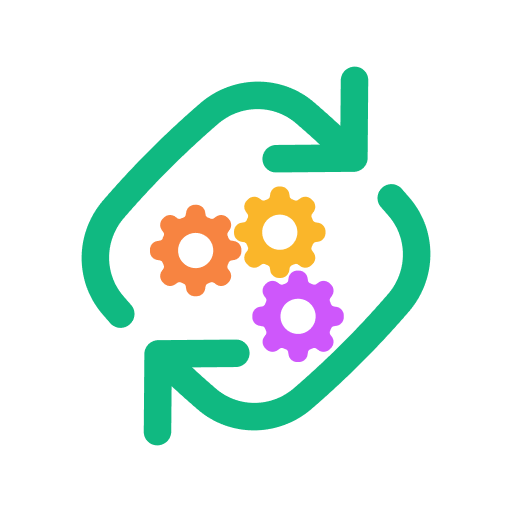In the fast-paced world of B2B and SaaS environments, where competition is fierce, and customer expectations constantly evolve, staying ahead requires innovative strategies. The strategy that has gained the most significant traction is using automation to drive product usage, feature adoption, account and revenue retention, renewals, up-sell and cross-sell revenue expansion, and promoter referrals from existing customers. At the heart of this approach lies the influential concept that automation eliminates human error from repetitive tasks, enabling businesses to streamline operations and enhance the customer experience.

In the realm of B2B and SaaS, customer success is paramount. Businesses invest substantial resources in acquiring customers, making it imperative to ensure their ongoing satisfaction and engagement. Here's where automation enters the scene as a game-changer. By taking over routine and repetitive tasks, automation frees up human resources to focus on strategic initiatives that truly drive growth.
A critical factor in the success of any B2B or SaaS product is how extensively its customers use it. Automation can be pivotal in guiding users through onboarding processes, offering personalized recommendations, and proactively suggesting relevant features. For instance, sending automated emails containing tips, tutorials, and success stories can lead users to uncover the product's full potential. Automation can trigger messages at the right moment by intelligently tracking user behavior, making the customer feel supported and valued.
Retention is the cornerstone of sustainable growth. Automating routine touchpoints, such as check-ins, surveys, and feedback requests, ensures customers feel heard and understood. Automation can identify potential churn by monitoring usage patterns and engagement metrics. Automated interventions, like targeted offers or personalized messages addressing pain points, can make all the difference in retaining customers and securing renewals.
Automation isn't just about maintaining the status quo – it can also drive revenue expansion. Automation tools can identify opportunities for upselling and cross-selling by analyzing customer data. Tailored recommendations can be automatically generated based on the customer's usage history and needs, introducing them to premium features or additional products that align with their goals. In addition to boosting revenue, it showcases a deep understanding of the customer's business.
Satisfied customers can be a powerful marketing asset. Automation can facilitate the process of turning customers into advocates. For instance, an automated referral program can reward customers who refer new business. Automation can also nurture relationships with promoters by sending them exclusive content, inviting them to user communities, or requesting their participation in case studies or testimonials. This not only leverages the influence of happy customers but also deepens their loyalty.
One of the most compelling advantages of automation is its ability to eliminate human error from repetitive tasks. In a B2B and SaaS context, accuracy is paramount. Automating data entry, report generation, and administrative tasks significantly reduces the risk of human mistakes that could negatively impact the customer experience. This instills trust in customers, showcasing a commitment to reliability and professionalism.
In today's data-driven business landscape, accuracy is not just a nicety – it's a prerequisite for building and maintaining customer trust. The introduction of automation into B2B and SaaS environments has been demonstrated to be a powerful tool for achieving unparalleled accuracy by eliminating the potential for human error in repetitive tasks. Research and real-world examples underscore the impact of this advantage on customer satisfaction, operational efficiency, and overall business success.
Overall, we use more automation in Sales, Accounting, and Marketing.
Other customer-facing business functions can benefit even more, because we have more data about customers than prospects.
The inherent accuracy of automation in repetitive tasks extends beyond mere efficiency gains. Customers consistently receiving accurate information, reports, and communications fosters a sense of trust in the service provider's capabilities. Moreover, the commitment to leveraging automation for accuracy showcases a dedication to professionalism and quality service delivery.
In a B2B and SaaS context, clients rely on precise data and timely reports to inform their strategic decisions. The accuracy made possible by automation directly contributes to their confidence in the product or service. This, in turn, can lead to longer-lasting relationships, increased customer loyalty, and positive word-of-mouth referrals.
In the dynamic landscape of B2B and SaaS, customer-centricity is paramount, and automation has emerged as a vital tool for growth. Businesses can create a comprehensive growth strategy by harnessing automation to drive various aspects such as product usage, adoption, retention, renewals, revenue expansion, and referrals. This is further reinforced by automation's ability to eliminate human errors from repetitive tasks, ensuring accuracy and dependability that resonates with customers.
While automation undoubtedly enhances efficiency, achieving the right balance is crucial. The human touch remains indispensable for building authentic relationships, understanding nuanced customer needs, and addressing complex issues. An effective automation strategy should work with human efforts, allowing teams to concentrate on strategic customer nurturing.
In a landscape where time is of the essence, and customer expectations are escalating, embracing automation isn't just an option – it's a competitive necessity that propels B2B and SaaS businesses towards sustained success.
The significance of automation in eradicating human errors from repetitive tasks cannot be overstated. Automation becomes an indispensable asset as businesses strive for accuracy and customer satisfaction. By utilizing automation for tasks like data entry, report generation, and administrative functions, B2B and SaaS companies boost operational efficiency and cultivate reputations as dependable and trustworthy partners.
However, it's vital to acknowledge that while automation enhances accuracy, it's not a one-size-fits-all solution. Human oversight, creativity, and critical thinking remain essential for addressing complexities and maintaining genuine customer interactions. Thus, combining automation and human expertise is the key to a successful and customer-centric B2B and SaaS ecosystem.